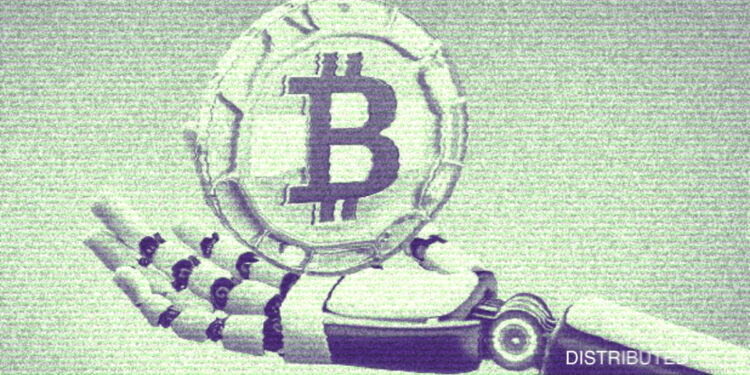BitMEX co-founder Arthur Hayes predicts that Bitcoin (BTC) will be the chosen currency for artificial intelligence (AI) operations.
In his essay, Hayes explains why AI will opt for Bitcoin as the “currency of choice” for economic decisions. He highlights Bitcoin’s decentralized nature, scarcity, and wide adoption as key factors in its selection. Hayes believes AI systems will rely on Bitcoin as their preferred payment rail for efficient economic activities.
“I will also be assuming that these AIs will be primarily focused on surviving and accomplishing the goals established by their creators.” He also added that “AI will do all that is in its power, pursuant to how it has been programmed, to accomplish the task it was created to achieve.”
Hayes’ Arguments
- AI services require a digital payment “system that is available at all times, digital, and completely automated.” Traditional banking systems and platforms like PayPal fall short regarding availability and censorship risks. AI needs a payment system built on a transparent and censorship-resistant blockchain, making Bitcoin the ideal choice.
- AI relies on data and computing power to operate effectively. These resources and electricity are crucial for AI’s learning and processing capabilities. Just like humans, AI must generate enough value to cover energy expenses. The currency accepted by AI must maintain its purchasing power in terms of electricity.
- Gold, fiat currency, and Bitcoin each have distinct scarcity, censorship resistance, and value characteristics. Gold’s worth may change with discoveries, while digital representations rely on trust. Politics drive Fiat currency’s value and lacks censorship resistance. In contrast, Bitcoin’s purely digital nature and mining process, fueled by electricity, establishes its scarcity and censorship resistance. The cost of electricity defines Bitcoin’s value over time.
- “An AI shouldn’t trust any institution that requires humans to operate it, as 1) humans are fallible and 2) AIs on a probabilistic basis will outlast human civilization.”



